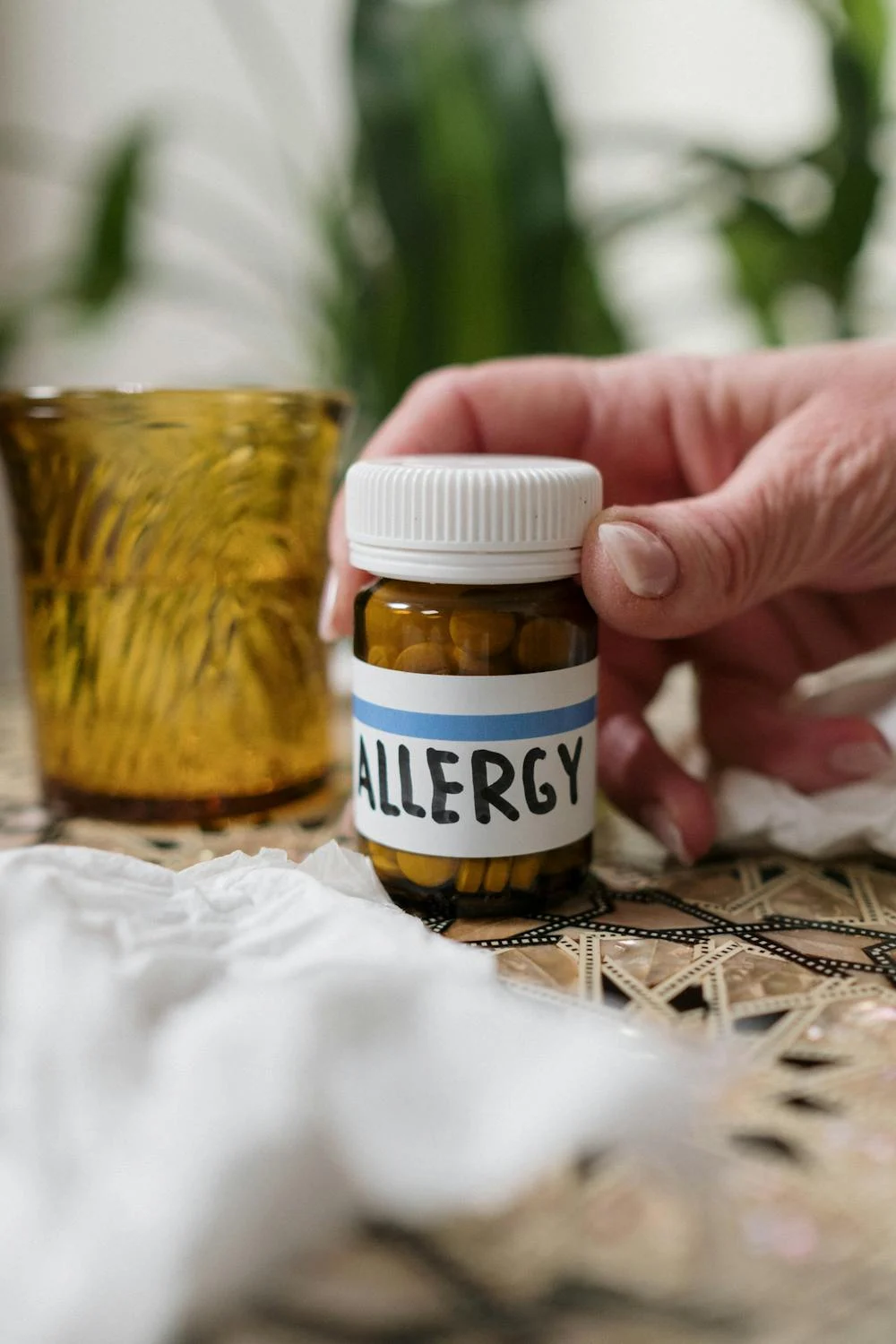HEALTH
10 Critical Signs of Allergic Reactions to Bugs: When to Seek Pest Control Services

Allergic reactions to pests and bugs are more common than many people realize. From mild irritations to severe health issues, these reactions can affect anyone at anytime. Identifying the symptoms early on can help prevent complications and ensure you get the appropriate treatment. In this post, we will explore ten key symptoms that may indicate you are experiencing an allergic reaction to pests. Knowing these signs can help you decide when it’s time to call in the professionals, whether it’s a common household pest or an outdoor invader.
Persistent Itching
Persistent itching is one of the most immediate symptoms of an allergic reaction. This can occur after contact with insects like mosquitoes, fleas, or bed bugs. If you’re struggling with flea infestations that cause persistent itching, check out https://www.ondemandpestcontrol.com/get-rid-of-fleas-in-bed/ for effective solutions. The itching is usually intense and leads to scratching, which may cause secondary infections. If you notice that your skin continues to itch excessively after bug bites, it might indicate an allergic reaction.
Red, Swollen Skin
Redness and swelling at the site of a bug bite or sting are common, but when these symptoms persist or spread beyond the initial area, it may suggest an allergic reaction. The skin can become tender and warm to the touch and even develop hives. This inflammatory response is your body’s way of fighting off what it perceives as a threat, but it can become quite severe.
Hives
Hives are raised, red welts that appear on the skin and can be very itchy. They are often a clear sign of an allergic reaction to an insect bite or sting. Hives can appear anywhere on the body and may come and go over several hours. If you develop hives after being bitten or stung by a pest, monitoring the reaction closely and seeking medical attention if it worsens is essential.
Difficulty Breathing
In more severe cases, an allergic reaction to pests can cause respiratory issues, including difficulty breathing. This is particularly common with stings from bees, wasps, or hornets. Symptoms can range from mild wheezing to severe asthma attacks or anaphylaxis, a life-threatening condition that requires immediate medical intervention.
If you experience trouble breathing after a bug encounter, seek emergency care immediately!
Swelling of the Face, Lips, or Throat
Facial swelling, including swelling of the lips, tongue, or throat, is a serious symptom that can indicate a severe allergic reaction, known as angioedema. This type of reaction can obstruct the airways, making it difficult to breathe or swallow. Angioedema often accompanies other symptoms like hives, and should be treated as a medical emergency.
Nausea and Vomiting9
Some people experience gastrointestinal symptoms like nausea and vomiting following an insect bite or sting. This can occur due to the body’s systemic allergic response. While less common, these symptoms are significant and should not be ignored, especially if they are severe or accompanied by other signs of an allergic reaction.
Dizziness or Fainting
Feeling dizzy or faint after a bug bite or sting can be alarming and is usually a sign of a severe allergic reaction or anaphylaxis. This occurs when the body’s immune system responds intensely to the allergen, causing a rapid drop in blood pressure. If you or someone else experiences dizziness or fainting after encountering a pest, seek emergency medical help.
Rapid or Weak Pulse
An allergic reaction to pests can affect your cardiovascular system, leading to a rapid or weak pulse. This symptom often accompanies severe reactions like difficulty breathing, swelling, or dizziness. Monitoring your pulse after an insect bite or sting can provide critical information about the severity of the reaction and the need for medical attention.
Fever
While not always directly related to an allergic reaction, a fever can develop following an insect bite or sting, particularly if an infection sets in. Fever indicates that your body is fighting off an invader, and if it occurs alongside other allergic symptoms, it could signal a more complex immune response. Persistent or high fevers should be evaluated by a healthcare professional.
Anaphylaxis
Anaphylaxis is the most severe form of allergic reaction and can be life-threatening. Symptoms include a combination of those listed above, such as difficulty breathing, swelling, hives, nausea, vomiting, rapid pulse, and dizziness. Anaphylaxis requires immediate treatment with an epinephrine injection and emergency medical care.
Recognizing the signs early can be the difference between life and death!
Conclusion
Allergic reactions to pests and bugs can escalate quickly. It is crucial to recognize the symptoms early and seek appropriate medical care. If you frequently experience these symptoms due to pest encounters, consider professional pest control services. These services can help manage and eliminate pest populations in and around your home, reducing the risk of allergic reactions and ensuring a safer, more comfortable living environment. Stay vigilant and stay safe!
This is a sponsored post
HEALTH
Unlocking Success: The Power of Digital Strategy for Healthcare Industry

In the ever-changing realm of healthcare, the digital revolution has emerged as a transformative force, reshaping the industry’s fundamental paradigms. At the core of this revolution lies the strategic integration of digital technologies, paving the way for enhanced patient care, streamlined operations, and unparalleled levels of efficiency. The power of digital strategy in the healthcare sector is not simply a trend; it represents a fundamental shift that holds the promise of revolutionizing how healthcare is delivered and experienced.
The digital strategy in healthcare encompasses various technologies and approaches, such as electronic health records (EHRs), telemedicine, wearable devices, artificial intelligence (AI), and big data analytics. These tools can potentially yield substantial enhancements in patient outcomes, operational efficiency, and cost-effectiveness. Through strategically utilizing these technologies, healthcare providers can enhance the delivery of personalized care, refine diagnosis and treatment decisions, and optimize resource allocation. Interact with IT Support Iron Mountain to harness the power of digital strategy in your healthcare sector.
In this article, we will explore what is digital health strategy and benefits of digital strategy in healthcare.
What is a Healthcare Digital Strategy?
A healthcare digital strategy is a plan that outlines how healthcare organizations will leverage digital technologies to improve patient care, streamline operations, and enhance overall efficiency. It involves using various digital tools, such as electronic health records (EHRs), telemedicine, mobile health apps, and data analytics, to transform the delivery of healthcare services.
A well-defined healthcare digital strategy can help organizations stay competitive in the rapidly evolving healthcare landscape by embracing innovation and meeting the changing demands of patients and regulatory requirements. By integrating digital solutions into their operations, healthcare providers can enhance patient engagement, optimize clinical workflows, and ultimately improve outcomes while ensuring compliance with industry standards and regulations.
8 Benefits of Digital Strategy for Healthcare Industry
1. Improved Patient Care
Implementing a digital strategy in the healthcare industry can significantly improve patient care. By leveraging digital tools and technologies, healthcare providers can streamline processes, enhance communication, and personalize patient experiences. Electronic health records (EHRs) allow for easy access to patient information, enabling healthcare professionals to make more informed decisions quickly.
Telemedicine provides patients convenient access to medical care, especially in remote areas or with limited mobility. In addition, digital strategies like wearable health devices and remote monitoring systems help track patient progress and enable early intervention when needed.
2. Data-driven Decision Making
Data-driven decision-making is crucial to implementing a digital strategy in the healthcare industry. Healthcare organizations can make informed decisions based on concrete evidence rather than intuition or guesswork by leveraging data analytics and insights. This results in more efficient operations, improved patient outcomes, and better resource allocation.
With access to real-time data, healthcare providers can identify trends, anticipate needs, and adjust strategies accordingly to enhance overall performance and deliver higher-quality care to patients. Embracing a data-driven approach through digital strategy is essential for staying competitive and meeting the evolving demands of the modern healthcare landscape.
3. Enhanced Communication and Collaboration
Effective communication and collaboration are essential in the healthcare industry, and a well-implemented digital strategy can significantly enhance these aspects. Utilizing digital tools and platforms allows healthcare providers to streamline communication processes, share information more efficiently, and collaborate seamlessly across different departments and locations.
This improved communication can lead to better coordination of care, quicker decision-making, and, ultimately, improved patient outcomes. Moreover, digital strategies can enable healthcare organizations to securely exchange sensitive patient data securely, ensuring that information is accurate, up-to-date, and easily accessible to those who need it. If you want to improve your business communication, contact IT Consulting Bellevue experts for assistance.
4. Efficiency and Cost Reduction
Implementing a digital strategy in the healthcare industry can bring about significant benefits, including increased efficiency and cost reduction. By leveraging digital tools and technologies, healthcare providers can streamline processes, improve communication between staff and patients, and enhance data management.
This enhanced efficiency saves time and reduces operational costs, ultimately leading to improved financial performance for healthcare organizations. Moreover, digital strategies such as telemedicine can help reduce unnecessary visits to healthcare facilities, further contributing to cost savings for providers and patients. Embracing digital solutions in the healthcare sector is essential for achieving operational excellence and delivering high-quality care while optimizing costs.
5. Patient Empowerment and Engagement
Digital strategy is crucial in empowering and engaging patients within the healthcare industry. By implementing digital tools and platforms, healthcare providers can offer patients greater access to their medical records, appointment scheduling, and health information. This enhanced transparency and convenience empower patients to take an active role in managing their health and wellness.
Furthermore, digital strategies such as telemedicine and patient portals facilitate seamless communication between patients and healthcare professionals, improving engagement and ultimately improving health outcomes. Patient empowerment and engagement through digital solutions are essential to modern healthcare delivery that prioritizes patient-centered care and fosters a collaborative approach to healthcare management.
6. Innovation and Research
In the healthcare industry, digital strategy is crucial in fostering innovation and advancing research. By leveraging digital technologies, healthcare organizations can streamline processes, improve patient care, and enhance operational efficiency. Digital platforms enable healthcare providers to collect and analyze vast amounts of data, leading to valuable insights for research purposes.
However, telemedicine and remote monitoring advancements have revolutionized patient care delivery, making healthcare services more accessible and convenient for patients. Embracing a digital strategy drives efficiency within the healthcare sector and paves the way for groundbreaking discoveries and improved patient outcomes through innovative research initiatives.
7. Scalability and Accessibility
Digital strategy plays a crucial role in enhancing the scalability and accessibility of healthcare services. By implementing robust digital solutions, healthcare providers can expand their reach to a broader audience while ensuring patients receive timely and quality care. Patients can access medical consultations remotely through telemedicine platforms, breaking down geographical barriers and improving overall accessibility to healthcare services.
Furthermore, digital strategies enable healthcare organizations to streamline processes, optimize resource allocation, and enhance operational efficiency, ultimately improving patient outcomes and satisfaction. Embracing digital technologies in the healthcare sector facilitates scalability and fosters greater accessibility to essential medical services for individuals across diverse demographics.
8. Regulatory Compliance and Security
Regulatory compliance and security are crucial to implementing a digital strategy in the healthcare industry. With sensitive patient information being handled and stored digitally, it is essential to ensure that all data management practices adhere to strict regulations such as HIPAA to maintain patient confidentiality and trust.
Implementing robust security measures, including encryption protocols and access controls, can help safeguard against data breaches and cyber threats. By prioritizing regulatory compliance and security within a digital strategy, healthcare organizations can protect patient data and build a foundation of trust with patients and stakeholders in the industry.
In Conclusion
The healthcare industry stands to gain significant advantages from using digital strategy. The integration of digital technologies has the potential to enhance patient outcomes and experiences, streamline operations, and reduce costs. Embracing digital strategy is no longer a choice; it has become necessary for healthcare organizations aiming to excel in an ever-changing landscape. Through digital tools and data-driven insights, healthcare providers can elevate the quality of care, improve operational efficiency, and ultimately enhance the overall health and well-being of individuals and communities.
FOOD & DRINKS
Mushrooms for Mental Health and How They Can Support Brain Function

In recent years, there has been growing interest in the potential of functional mushrooms to support mental health and cognitive function. Traditionally used in various cultures for their medicinal properties, mushrooms are now gaining recognition for their ability to enhance brain health and improve mood. In this post, we’ll explore the cognitive and mood-enhancing benefits of functional mushrooms, discuss research-backed evidence on specific mushroom species, and provide practical tips for incorporating them into daily routines.
- Functional mushrooms have been used for centuries in traditional medicine systems such as Traditional Chinese Medicine (TCM) and Ayurveda for their medicinal properties.
- Mushrooms contain bioactive compounds that may support mental health and cognitive function, such as polysaccharides, beta-glucans, and triterpenoids.
- The growing interest in functional mushrooms is driven by an increasing body of scientific research supporting their health benefits.
- Mushrooms are considered adaptogens, meaning they help the body adapt to stress and maintain balance, which can positively impact mental well-being.
- Different mushroom species have unique properties and may offer specific benefits for brain health and mood regulation.
Cognitive and Mood-Enhancing Benefits of Functional Mushrooms
Functional mushrooms have long been revered for their ability to support overall health, but their impact on brain function is particularly noteworthy. These mushrooms contain bioactive compounds that can cross the blood-brain barrier and interact with neurotransmitter systems, leading to improved cognitive function and mood regulation.
Mushrooms such as Lion’s Mane, Reishi, and Cordyceps are especially renowned for their cognitive and mood-enhancing benefits. Lion’s Mane, known for its distinctive appearance resembling a lion’s mane, contains compounds called hericenones and erinacines, which have been shown to stimulate nerve growth factor (NGF) production in the brain. This promotes the growth and repair of nerve cells, potentially improving memory, concentration, and overall brain function.
Reishi, often referred to as the “king of mushrooms,” contains bioactive compounds like triterpenes and polysaccharides that have been linked to reduced stress and anxiety levels. Research suggests that Reishi may exert its mood-enhancing effects by modulating the activity of neurotransmitters such as serotonin and dopamine, which play key roles in regulating mood and emotional well-being.
Cordyceps, another prized mushroom in traditional medicine, is known for its adaptogenic properties, helping the body adapt to stress and maintain balance. Studies have shown that Cordyceps may improve cognitive function by increasing oxygen utilization in the brain and enhancing mitochondrial function, leading to greater mental clarity and focus.
Morel mushrooms, a hidden gem of the fungal world, revered for their distinct flavor and meaty texture, are also gaining recognition for their potential health benefits. Rich in antioxidants and nutrients like vitamin D and copper, morel mushrooms have been linked to immune support and may aid in reducing inflammation. Moreover, recent research suggests that certain compounds found in morel mushrooms could have neuroprotective properties, potentially benefiting cognitive function. However, these delicate fungi have a short shelf life. If you’re lucky enough to find some fresh morels, learn how to store morel mushrooms to preserve their flavor and texture best.
Research-Backed Evidence on Mushroom Species for Brain Health
Numerous studies support the cognitive and mood-enhancing benefits of functional mushrooms. For example, a study published in 2017 found that Lion’s Mane supplementation improved cognitive function in older adults with mild cognitive impairment. Participants who consumed Lion’s Mane extract for four months showed significant improvements in cognitive function compared to those who took a placebo.
Research suggests that Reishi mushrooms may have potential benefits for reducing symptoms of anxiety and depression. Studies have shown that Reishi extract supplementation reduced anxiety and depression levels in mice subjected to chronic stress. However, the therapeutic potential of Reishi mushrooms for mood disorders in humans is still under investigation.
Practical Tips for Incorporating Mushrooms into Daily Routines:
Incorporating functional mushrooms into daily routines can be easy and enjoyable. Here are some practical tips to help you reap the cognitive and mood-enhancing benefits of mushrooms:
- Add them to your meals: Incorporate mushrooms like Lion’s Mane, Reishi, or Cordyceps into your cooking. You can sauté them with vegetables, add them to soups or stews, or blend them into smoothies for an extra nutritional boost.
- Try mushroom supplements: If you prefer a more convenient option, consider taking mushroom supplements. Look for high-quality supplements made from organic mushrooms and follow the recommended dosage instructions.
- Experiment with recipes: Get creative in the kitchen and experiment with recipes featuring functional mushrooms. Try making a Lion’s Mane stir-fry, a Reishi mushroom tea, or a Cordyceps-infused smoothie. The possibilities are endless!
- Stay informed: Keep up to date with the latest research and information on functional mushrooms and their benefits. Websites like [URL] offer valuable resources and recipes to support your journey to better brain health.
Functional mushrooms offer a natural and effective way to support brain health and improve mood. With their cognitive and mood-enhancing benefits backed by research, mushrooms like Lion’s Mane, Reishi, and Cordyceps are valuable additions to any wellness routine. By incorporating these mushrooms into your daily diet and lifestyle, you can optimize brain function, reduce stress, and enhance overall mental well-being. Start exploring the world of functional mushrooms today and unlock their potential for better brain health and vitality.
- Functional mushrooms are rich in antioxidants, which help protect brain cells from oxidative stress and damage.
- Some mushrooms, like Lion’s Mane, contain compounds that stimulate the production of nerve growth factor (NGF), promoting the growth and repair of brain cells.
- Reishi mushrooms have been shown to modulate the activity of neurotransmitters such as serotonin and dopamine, which play key roles in mood regulation.
- Cordyceps mushrooms may improve cognitive function by increasing oxygen utilization in the brain and enhancing mitochondrial function, leading to greater mental clarity and focus.
- Incorporating functional mushrooms into your diet may also support overall health and immunity, as they contain vitamins, minerals, and other beneficial nutrients.
HEALTH
Revitalizing Your Spinal Health: A Comprehensive Guide

Table of Contents
- Key Takeaways
- Understanding Spinal Health
- Lifestyle Modifications for Better Spine Health
- Exercise and Flexibility
- Nutrition and Spinal Health
- The Role of Hydration
- The Importance of Sleep
- Managing Pain: How Chiropractic Care Can Help
- Conclusion
Key Takeaways
- Spinal health is a crucial aspect of overall well-being and can be influenced by various lifestyle choices.
- Exercise, proper nutrition, adequate hydration, and quality sleep are foundational to maintaining a healthy spine.
- Chiropractic care can be invaluable for dealing with pain and improving spinal health.
Understanding Spinal Health
The spine is a complex structure that supports our body, enables motion, and safeguards the central nervous system. It undergoes stress from physical activity, and caring for it is essential for our overall well-being. It can help prevent issues such as back pain or neck pain. Misalignment can lead to pain or limited mobility. Individuals can mitigate risks and preserve their spinal health by adopting preventive measures and proactive care.
Lifestyle Modifications for Better Spine Health
It is a common misconception that only physically strenuous activities lead to spinal health issues. The truth is that ordinary, everyday actions, including how we stand, sit, or sleep, significantly influence the well-being of our spine. Minor changes to daily routines, such as setting up an ergonomically correct workspace, can prevent undue stress on the spine. Furthermore, maintaining an active lifestyle with regular breaks to walk or stretch can counteract the detrimental effects of long periods of sitting. These mindful habits can significantly enhance one’s spinal health and help maintain an active lifestyle free from discomfort.
Exercise and Flexibility
Regular exercise is essential for spinal health. Focused core strengthening and flexibility training like yoga can improve posture and reduce injury risk. A balanced fitness regimen with aerobic, strengthening, and flexibility training tailored to your needs is ideal for sustaining a flexible and robust spine.
Nutrition and Spinal Health
The saying ‘you are what you eat’ applies particularly to spinal health. Our bones, muscles, and other tissues in the back require various nutrients to function optimally. Essential minerals, such as calcium and vitamin D, are crucial for bone density and strength, which play a significant role in the spine’s structural integrity. Other nutrients, such as omega-3 fatty acids found in fish, have anti-inflammatory properties that could help those with chronic back problems. Therefore, consuming a diet rich in these nutrients can be a long-term investment in the health of your spine.
The Role of Hydration
Although often overlooked, hydration is a crucial element in maintaining spinal health. The intervertebral discs that act as shock absorbers in the spine comprise a large percentage of water. These discs compress with activity throughout the day and rehydrate and expand during rest, especially during sleep. Inadequate water intake can lead to reduced elasticity and potentially to disc degeneration over time. Therefore, staying adequately hydrated is vital for maintaining disc health and, by extension, a healthy spine.
The Importance of Sleep
Restorative sleep is as crucial as diet or exercise for our spinal health. During sleep, the body performs vital repair processes, including those that affect the spine. The alignment of your sleep surface is critical; a mattress and pillow that offer the right balance of support and comfort can significantly affect spine health. They help maintain natural spinal curves and reduce the pressure on the spine’s anatomy, preventing stiffness and pain. Ensuring a sleep environment that promotes good sleep hygiene contributes to the therapeutic process and supports spinal well-being.
Managing Pain: How Chiropractic Care Can Help
Chiropractic care is a non-surgical approach that can help individuals suffering from back and neck pain. Chiropractors use manual adjustments to realign the spine, which relieves pressure on the nervous system. These adjustments can be personalized to suit the individual’s specific needs and may be accompanied by exercise and lifestyle recommendations promoting spinal health. This approach can be particularly beneficial for individuals who want to avoid medication or surgery.
Conclusion
A healthy spine improves mobility and reduces discomfort, elevating one’s quality of life. Good lifestyle habits such as exercise, nutrition, hydration, and sleep help maintain spinal health. Chiropractic care is also essential for managing back or neck pain. Invest in spinal healths today for a better tomorrow.

 HOME IMPROVEMENT12 months ago
HOME IMPROVEMENT12 months agoThe Do’s and Don’ts of Renting Rubbish Bins for Your Next Renovation

 BUSINESS1 year ago
BUSINESS1 year agoExploring the Benefits of Commercial Printing

 BUSINESS12 months ago
BUSINESS12 months agoBrand Visibility with Imprint Now and Custom Poly Mailers

 HEALTH8 months ago
HEALTH8 months agoThe Surprising Benefits of Weight Loss Peptides You Need to Know

 TECHNOLOGY10 months ago
TECHNOLOGY10 months agoDizipal 608: The Tech Revolution Redefined

 HEALTH7 months ago
HEALTH7 months agoYour Guide to Shedding Pounds in the Digital Age

 HOME IMPROVEMENT7 months ago
HOME IMPROVEMENT7 months agoGet Your Grout to Gleam With These Easy-To-Follow Tips

 HEALTH11 months ago
HEALTH11 months agoHappy Hippo Kratom Reviews: Read Before You Buy!









